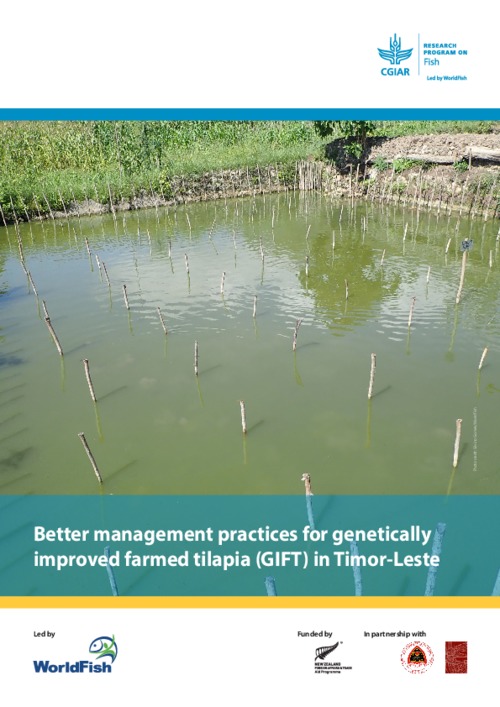Better management practices for genetically improved farmed tilapia (GIFT) in Timor-Leste
Abstract
In Timor-Leste, aquaculture development has been identified as a way to improve food and nutrition security, diversify livelihoods of coastal and inland communities, and increase economic growth in the country. In order to achieve sustainable aquaculture growth, developing scalable aquaculture technology packages and better management practices (BMPs) interventions are necessary to narrow the fish demand-supply gap in the future while maintaining a healthy ecosystem. Nile tilapia (Oreochromis niloticus) is the most important farmed fish in Timor-Leste as it is a tropical fish suitable for year-round production, and Timorese like it because of its taste, versatility and affordability. Taking technical, socioeconomic and environmental aspects into account, this manual provides BMPs guidelines for sustainable farming of genetically improved farmed tilapia (GIFT) in Timor-Leste. It aims to enhance the capacity of grow-out farmers and extension service providers in Timor-Leste to support scaling of GIFT sustainably. The manual is one of the outputs of the Partnership for Aquaculture Development in Timor-Leste (PADTL), a 5-year project (2014–2019) funded by the New Zealand Aid Programme

